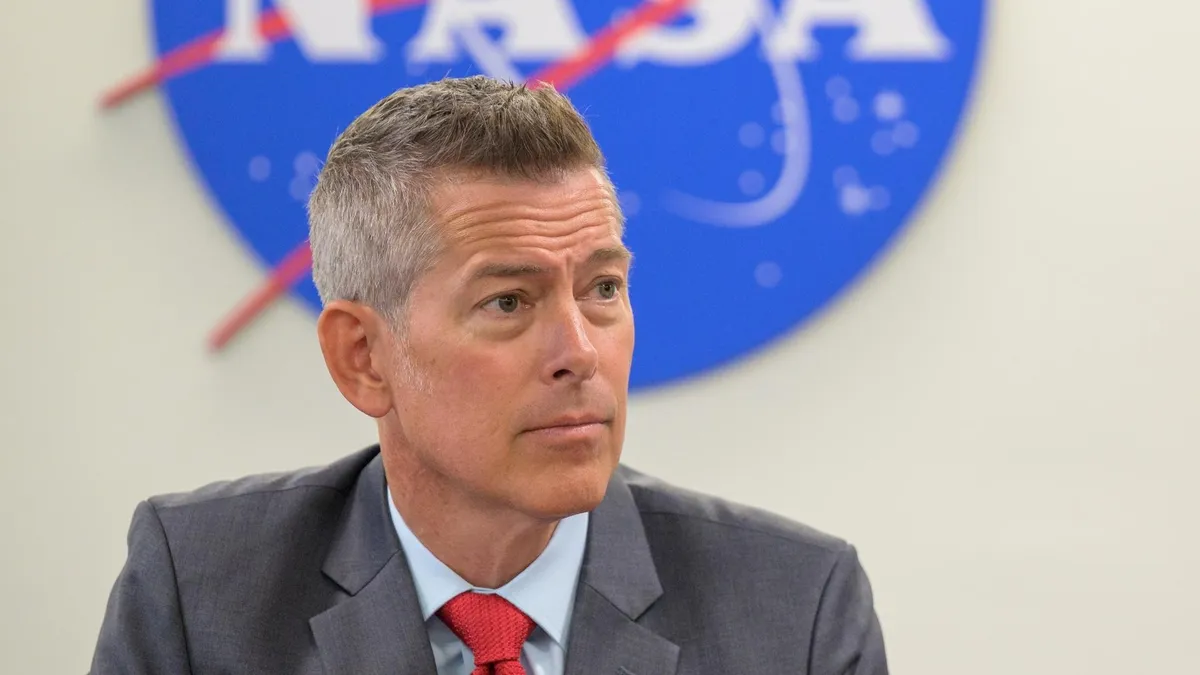
NASA's acting Administrator, Sean Duffy, has announced a significant shift in the agency's focus, indicating that NASA will step back from climate science to prioritize space exploration. This decision aligns with President Trump's budget proposal, which aims to implement substantial cuts to NASA's Earth science initiatives. Such reductions could jeopardize critical missions and raise alarm among researchers regarding potential gaps in climate monitoring and weather forecasts.
During a recent appearance on Fox Business on August 14, Duffy articulated that NASA's main objective should be the exploration of space rather than conducting research on Earth's climate. He stated, "All of the climate science and all of the other priorities that the last administration had at NASA, we're going to move aside." Duffy emphasized that NASA's scientific efforts will now be primarily directed towards space exploration, reinforcing the agency's foundational mission.
While discussing future scientific endeavors, Duffy criticized NASA's previous array of priorities and confirmed that upcoming missions will center on destinations such as the Moon, Mars, and other locations in low Earth orbit. This shift in focus comes in light of the anticipated decommissioning of the International Space Station (ISS), expected after 2030. He drew parallels between past missions, like Apollo, and current initiatives such as Artemis, which aims to send astronauts back to the Moon.
Following his initial comments, Duffy visited NASA's Johnson Space Center in Houston on August 18, where he clarified that while other federal agencies might lead in climate science, NASA remains the sole agency capable of supporting human spaceflight. He acknowledged that Congress has tasked NASA with certain responsibilities but reiterated the agency's unique role in exploring space. Duffy stated, "We are the only agency that's going to explore space."
A NASA spokesperson later conveyed that Duffy’s statements reflect a broad vision rather than an official directive, asserting that no missions have been canceled or cut as of yet. The spokesperson also pointed out that pending congressional appropriations could influence future decisions.
NASA's Earth science program has historically been the largest global provider of climate and weather data. However, during both terms of President Trump's administration, the focus on Earth science has faced considerable threats. In the past, proposed budget cuts raised concerns over the potential cancellation of crucial missions such as the Orbiting Carbon Observatory 3 (OCO-3) and CLARREO Pathfinder.
The proposed budget for FY 2026 seeks to reduce NASA's overall science funding by 47%, with Earth science funding potentially slashed by more than half. Such drastic cuts could endanger long-term data records, including those related to sea level measurements, carbon cycles, and atmospheric dynamics.
Proponents of shifting away from climate research argue that other agencies, such as the National Oceanic and Atmospheric Administration (NOAA), could assume these responsibilities. This reallocation may allow NASA to concentrate its resources on space exploration. Despite the political pressures faced during Trump's administration, several climate science satellites and instruments aboard the ISS were successfully launched and continue to operate today. For instance, OCO-3 began monitoring carbon dioxide levels in 2019, while Sentinel-6 Michael Freilich, launched in 2020, measures sea level rise, and Landsat 9, which launched in 2021, continues a legacy of Earth imagery spanning over 50 years.
However, the proposed cuts for FY 2026 could jeopardize nearly 40 active and planned NASA science missions, many of which focus on Earth-related research. Such a reduction would mark an unprecedented contraction of NASA's science portfolio, with significant implications for climate research globally. Ultimately, the fate of these missions will depend on Congress, which has the authority to determine NASA's funding allocations. Appropriations decisions are anticipated by October, coinciding with the commencement of the new fiscal year. Notably, lawmakers from both parties have already expressed resistance to the steep science cuts outlined in the president's budget proposal.